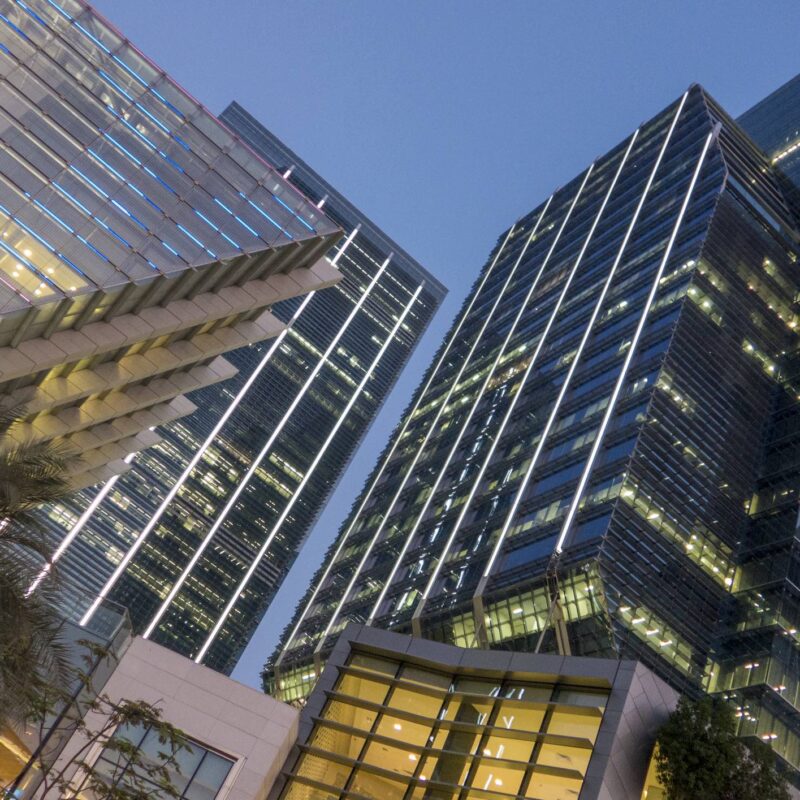
Getty Images
Israeli startup funding cut in half amid global slowdown
Venture capital investment shrinks in third quarter, forcing layoffs among other cost cuts after years of liberal spending
Funding for Israeli startups slid further from last year’s record heights as sinking technology stocks, rising interest rates and renewed geopolitical conflict chill enthusiasm for investment.
The torrent of cash once lavished on Israel’s emerging tech companies fell to $2.8 billion in the third quarter, a 56% drop from the same period in 2021, and a 36% decline from the previous quarter, according to a report by the Herzliya-based Viola Ventures. The slowdown was especially pronounced in so-called mega deals, valued at more than $100 million, which fell 69% from last year’s third quarter, Viola’s analysts said in the Oct. 12 report, “Public Market Volatility – Reflected in the Israeli Tech Ecosystem.”
While the findings were discouraging, they mirror the decline in startup funding for U.S. and Canadian companies, which fell 53% in the third quarter to about $40 billion from the same period a year ago, and 37% from the second quarter of 2022, according to Crunchbase. The drop must also be viewed in the context of 2021’s record fundraising and an overall upward trend over recent years, the Viola report said.
“Prophecy is for fools, but we do believe that technology will continue to be a massive driver for global transformation, and VCs will continue to invest in disruptive companies,” Tomer Meridor, a member of Viola’s investment team who wrote the report with colleague Rotem Shacham, told The Circuit.
New York’s tech-heavy Nasdaq stock market, where Israeli companies represent the second largest number of foreign members after China, reflects the darkening sentiment. The Nasdaq Composite Index has fallen 33% since the end of last year, and Nice Systems, one of the biggest Israeli companies trading on the exchange, is down 30%. The Federal Reserve raised its benchmark interest rate by three-quarters of a percentage point in September to a range of 3% to 3.25%, bringing borrowing costs to their highest point since 2008. Concern about the Russia-Ukraine conflict and its impact on energy prices has also led investors to reduce risk.
Israeli startups, in turn, have been laying off employees and cutting back on other expenses. Otonomo Technologies, which collects data from network-connected cars, dismissed dozens of its employees after losing 95% of its value on the Nasdaq. Digital advertising platform Taboola, whose shares have fallen 78%, and website maker Wix, down 54%, both reportedly laid off more than 100 employees each.
Setting a record in 2021, Israeli startups raised $25.6 billion and 23 Israel companies held IPOs in the U.S., according to the IVC-Meitar Israeli Tech Review.
“The ongoing economic volatility across the globe is impacting the global public and private markets, and Israel is no different,” said Meridor. “2021 was an outlier in terms of fundraising pace and valuations, and [we’re] actually seeing back-to-normal levels in the short-mid-term.”
Among the ways Israeli companies have sought to contend with the decline in U.S. investment has been to find new partners in the Gulf Arab states that signed the Abraham Accords in 2020, normalizing ties with the Jewish state. Israel and the United Arab Emirates signed a free trade agreement in May that is expected to increase trade between the two countries to $10 billion within five years. OurCrowd, Israel’s most active venture capital platform, was licensed last year to operate as a fund manager in the Abu Dhabi Global Market.
Affinity Partners, a private equity firm founded by Jared Kushner, the former White House adviser, plans to invest millions of dollars in Israeli startups from the $2 billion it raised from Saudi Arabia’s sovereign wealth fund, The Wall Street Journal reported in May. Saudi Arabia’s Mithaq Capital has become the largest investor in Otonomo, amassing a 20% stake as the company’s stock sank.
“We believe this is the time for companies to make bold considerations,” Meridor said, recommending that startups “focus on long-term value creation rather than short-term fixes, diversify revenue streams, hone in on long-term sustainable aligned business models and seek accretive M&A [mergers and acquisitions].”



